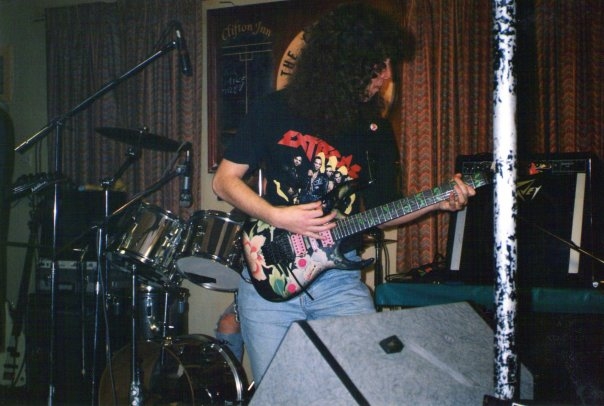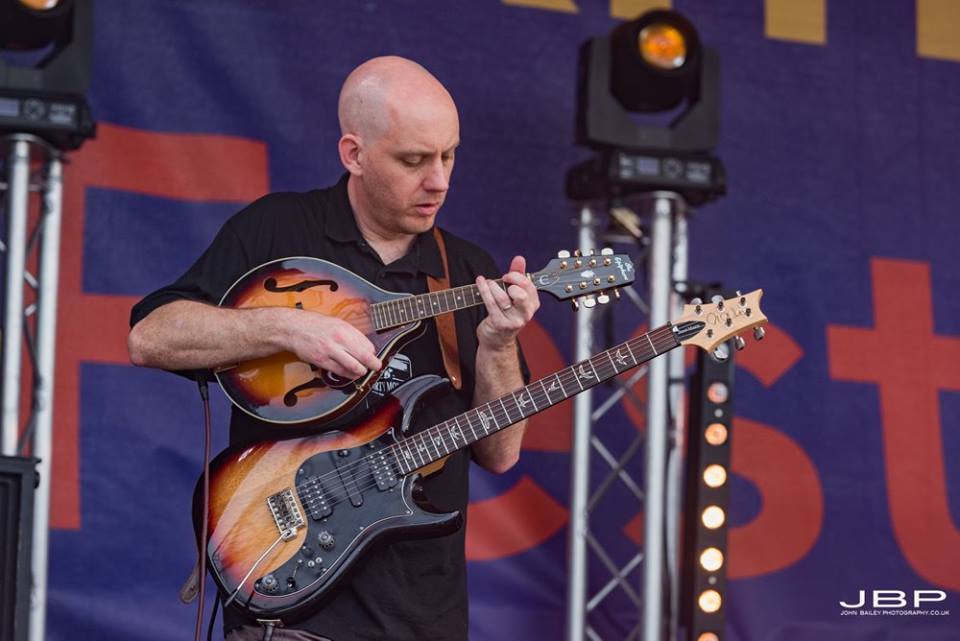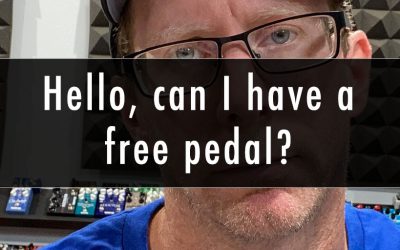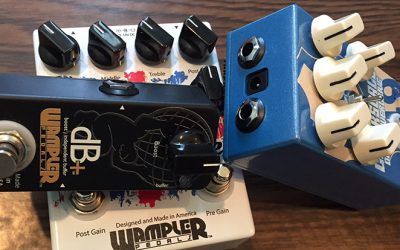
A few days ago Brian, Alex and I were talking as Brian was thinking about video ideas for YouTube, and we were discussing guitarists who play live regularly but still get a few things wrong. Not necessarily in terms of their playing, but their approach to the instrument. Once I started to give ideas for subjects it occurred to me that I was just talking about me when I first started playing live, some 27 or so years ago (Man, that makes me sound old).
This conversation made me think about what I would say to myself if I had the opportunity to go back and advise the younger me with the benefit of what I have learned in the thousands of gigs I’ve done since…
- You aren’t as good as they tell you.
When I was 17 I was able to play virtually anything I wanted, I was in a rock covers band playing stuff that was designed purely to impress other guitar players. After a year or so, I thought I was brilliant because people kept telling me I was as I could play fast complicated stuff, but the reality of it was that I was just showing off. Playing for their appreciation and not caring one iota about what really mattered. I should have been more humble and understood that just because I played “It’s a Monster” as an opener, including the solo without warming up (see, still showing off), it didn’t mean I was good, I was just flashy. All style and no substance, or as my dear ol’ cockney Granddad would have said, “all mouth and no trousers”. Which leads me nicely too… - Take some lessons and learn to read.
My biggest regret in life, thus far, was not sourcing a decent teacher and learning to read properly. I was proud of the fact “I’ve never taken a lesson in my life” and thought it made me a better musician. It didn’t, it just restricted the future me. In the last few years I’ve had the pleasure and honour of becoming good friends with amazing guitar teachers and the things I’ve learned from them, just in passing, have made me 100 times the player I was. Imagine if I’d actually had some proper lessons earlier in life… - Listen to the rest of the band, ALL of the time.
This was the hardest learning curve of them all, and it’s something I struggle with now. I really wish I had got this into my head much much earlier. After all, being in a band is about creating and playing music with a bunch of like-minded people. Listening to them, bouncing off them, playing WITH them (instead of just playing with yourself – double entendre COMPLETELY intended) is everything. Be in a band, they are not there to back you up, you are an equal part in the end product. - Gain. GAIN! Turn it the hell down!
The most powerful gain tones are not the ones with loads of gain, just the ones with the right amount properly EQ’d. You will probably need two distinct gain tones, one for rhythm and one for lead. How this is achieved is variable, either volume control on the guitar or via a boost pedal, but you know, your lead tone is gonna sound utterly horrible for rhythm. Usually. Also worth remembering the louder you play, the less gain you are likely to need. I expect there is a technical explaination for this, but I don’t know it! - Practice the subtle stuff, it’s what will define you to your peers.
Especially vibrato and bends. Make sure your intonation is on point, make sure your vibrato isn’t crap. Because when you don’t work on either, you will sound bloody awful and to the guys in the know that are listening, you will be severely lacking. - Don’t be afraid of new music.
When grunge hit I was terrified, my dazzling technique meant nothing to anyone, I got completely lost so I decided I hated it and refused to play it. What an idiot. Roll with it youngling, roll with it. - Learn the neck properly
This is something I’ve been working on recently after a long discussion with Mr Tom Quayle on a very long flight. As usual, he was trying to help me and I was arguing for the fun of it, but he won in the end. He calls it fretboard visualisation. This is knowing what all the notes are on the neck, and how the relate to each other… this way, when improvising, you can move around the neck easier as you know where the sweet spots are. And not the complicated ones, ending a passage on a third, fifth or seventh of the chord you are currently over sounds so much better than landing on the root… so, this is directly related to breaking out the boxes I suppose, something else I was stuck in when I was trying to be me back in the day. - If it’s being played properly, there’s no such thing as crap music
Kinda guessing that I wasn’t alone in thinking that the music I liked was great and the rest was crap when I was young. I don’t particularly like certain styles/genres of music still, but I listen to it often, because you absorb stuff when you listen to it and it will increase your vocabulary considerably when you are in full flow without realising it. - If the crowd aren’t being responsive, it ain’t their fault
If the band is boring, make up to you to make it more interesting. Well, this is going to be a contentious one I think… As a lead guitar player, or even the rhythm guitar player, it’s kinda up to you to bring the colour to the songs. If you are working with a great bass player, they will do their bit, but if you are still banging out boring chords and predictable solos, then look at yourself before you judge your audience. - Protect your hearing
Pretty certain I don’t need to explain this any further… - Carry spares. Of everything
I know, kinda obvious isn’t it. However, there was a time when I didn’t… turned out to be the worst gig of my life!
That’s my ‘have a word with yourself’ moment… For your amusement, the header picture of me is from 1992, and this is the 2018 version – and yes, I do miss my hair!




0 Comments